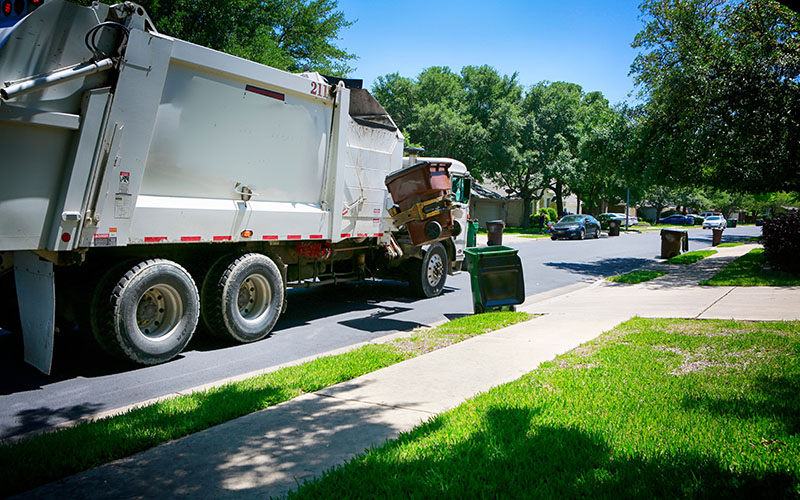HOA fees are a standard component of HOA living. These dues serve an essential purpose in the continued operation and success of a community. Yet, far too many residents misunderstand the value of these dues and their role in the broader context. What are HOA fees anyway?
What are HOA Fees?
Living in an HOA comes with several responsibilities. Homeowners must maintain their properties, follow HOA rules, and pay regular fees. So, what are homeowners association fees, and what services do they cover?
HOA fees, also known as HOA dues, are fees that homeowners pay regularly — monthly, quarterly, or annually, to the association. When an owner first purchases a home in a HOA, they agree to fulfill certain obligations, including the obligation to pay dues.
What is a Homeowners Association Fee? Is This Legal?
Most homeowners associations collect dues. Whether or not an HOA is legally permitted to do so depends on state laws and the governing documents. Some states give HOAs the authority to collect fees related to the management and maintenance of their communities. Virginia is one of them, as per Section 55.1-1805.
If state laws are silent, homeowners and board members should refer to their CC&Rs and bylaws for guidance. These documents should explicitly state that the HOA is authorized to collect dues from homeowners. Additionally, many state laws defer to the governing documents of a homeowners association (HOA).
What Do Homeowners Association Fees Cover?

While some owners may not like them, HOA dues serve a vital function. These dues cover the cost of maintaining, managing, and operating an association. Without these dues, an HOA wouldn’t be able to hire vendors or professionals to service the community.
What do HOA dues cover? The specifics can vary depending on the needs of the HOA, but fees usually cover the following:
- Landscaping and Grounds Maintenance
- Exterior Building Maintenance
- Trash and Recycling Services
- Water and Sewer for Common Areas
- Pest Control in Common Areas
- Amenity Maintenance
- Security Services
- Insurance for Common Areas
- Administrative Costs
- Utilities for Common Areas
- Snow Removal and Street Cleaning
- Maintenance of Private Roads and Sidewalks
- Community Events or Newsletters
- Compliance and Enforcement Costs
- Professional Management Fees
- Reserve Fund Contributions
Owners should refer to their association budget to review what services the community provides.
Do Condos Charge Fees?
Yes, condo associations also charge fees or dues. Condo fees serve the same purpose as HOA fees. They go toward the expenses related to managing, maintaining, and operating the condo community.
Condo fees tend to be higher than HOA fees on average because condo associations typically have more complex needs. Owners share responsibility for the condo buildings, including maintenance for shared roofs, hallways, elevators, lobbies, and other components.
How Much Are Typical Homeowners Association Dues?
HOA fees can vary extensively from one association to another. A large community that offers several amenities, common areas, and landscaping projects, in a more desirable location, will likely have higher fees than a smaller community with fewer shared spaces and maintenance needs.
According to data analyzed by the Foundation for Community Association Research, the average monthly dues for Virginia HOAs in 2023 were $325.
Fees won’t stay the same forever. Homeowners shouldn’t expect to pay the same amount every year indefinitely. Fees can change over time, typically increasing due to economic factors or shifting needs.
What is the HOA Fee? Penalties for Nonpayment
Homeowners are obligated to pay HOA fees and can face certain consequences if they default on their payments. These consequences can vary depending on state laws and the governing documents of the relevant entity.
What happens if you don’t pay HOA fees? In general, the following penalties may apply:
- Late Fees and Interest Charges. An HOA may charge a late fee or interest in addition to the original amount owed. This compounds the debt and continues to accrue the longer it remains unpaid.
- Suspension of Privileges. Some HOAs can temporarily suspend the owner’s privileges, such as access to parking and amenities, for as long as the outstanding dues are not settled.
- Legal Action. An HOA may file a lawsuit against the delinquent owner, which can result in a court order requiring payment of the fees.
- Liens. In many states, an HOA can place a lien on the homeowner’s property for nonpayment of dues. An owner can’t refinance their mortgage or sell their home without first satisfying the lien.
- Foreclosure. Harsh as it may seem, many HOAs can foreclose on the lien and satisfy the debt using the proceeds from the foreclosure sale. This, of course, means that members can lose ownership of their homes as a direct result of defaulting on dues.
Can I Refuse to Pay HOA Fees?

In theory, homeowners can refuse to pay their dues, but they shouldn’t. Refusing to pay their dues can result in a myriad of consequences. As explained above, it can even lead to foreclosure.
Depending on state laws and the governing documents, an owner may be able to enter a payment plan to settle their unpaid dues in increments, but this isn’t always an option. Some HOAs don’t offer payment plans or have limitations on them.
It is also important to remember that non-payment of dues can negatively impact credit scores. If an owner defaults on their HOA fees, the HOA can report the debt to credit bureaus. The same can happen if the HOA hires a collection agency to collect the debt.
Homeowners agree to fulfill certain financial responsibilities when they agree to purchase a home within a HOA community. Because of this, the only way to get out of avoid HOA fees is to refrain from buying a home in a HOA community.
Do HOA Board Members Pay HOA Dues?
Yes, board members are also obligated to pay dues. Although board members are considered the leaders of the community, they don’t receive special treatment, nor are they paid for their services.
Board members are volunteers. This means they agree to serve the association without payment or compensation. Many HOAs forbid board members from gaining financially from their position, which includes exempting them from paying dues.
Are HOA Fees Tax Deductible?
In most cases, HOA dues are not tax-deductible for homeowners who use the property as a primary residence. If homeowners rent out the property, HOA dues may be considered a deductible rental expense. Homeowners may also deduct a portion of their HOA dues if they qualify for a home office deduction.
HOA Fees Meaning Explained
Homeowners associations are responsible for maintaining curb appeal and preserving property values. These communities can’t achieve that goal without collecting HOA fees. While they may seem like an added financial burden to owners, dues play a vital role in protecting investments and ensuring long-term success.
National Realty Partners is a leading provider of HOA management services in Virginia. We help communities thrive. Call us today at 703-435-3800 or request a proposal online to get started!
RELATED ARTICLES:
- A Step-By-Step Guide To HOA Transition From Developer Control
- Is A HOA Reserve Study Required In Virginia?
- Can You Refuse To Join A Homeowners Association?
